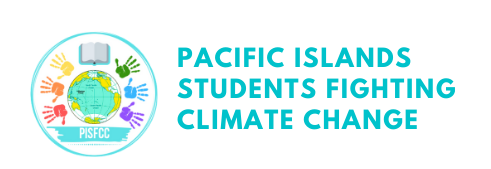Taking Climate Change to the Top Court
Women of Tanna, Vanuatu. Photo credit Greenpeace Australia Pacific
HONIARA, SOLOMON ISLANDS – Three years ago, a group of law students from across the Pacific met at a university campus in Vanuatu. We came together to discuss how we could put our legal knowledge to work in order to take a stand on the climate crisis that threatened our countries, our cultures, and our futures. Today, we are on the cusp of taking the world’s biggest problem to the world’s highest court.
Remnants of coconut trees destroyed by category 5 cyclone Harold in South Santo, Vanuatu.
Here in the Pacific, we are on the front line of the climate crisis. We have contributed the least to the global pollution that is warming our planet, but we are suffering greatly from its consequences. Our region has been hit by increasingly frequent Category 5 cyclones, our cultural sites are threatened by rising sea levels, and our vital marine ecosystems are on the verge of being destroyed.
Countries around the world have consistently failed to take necessary steps to reduce carbon dioxide emissions in order to limit global warming, and to provide for loss and damage already caused by climate change. International law has so far failed to compel polluting countries to make the changes needed to ensure a safe climate for all.
The campaign for the International Court of Justice to issue an advisory opinion on climate change was born of our determination to put Pacific voices at the forefront of the climate debate, not as victims pleading for charity, but as advocates demanding justice.
The campaign is a response to the human-rights crisis caused by climate change, which has severely affected the livelihoods, housing, food, water, sanitation, health care, and environment of hundreds of millions of people in vulnerable countries. It is being led by young people because it is our future that is being threatened by the world’s addiction to fossil fuels and the focus on profit and economic growth over the planet’s health.
In essence, an ICJ advisory opinion on this issue would clarify international law at the intersection of climate change and human rights. It could provide an independent assessment regarding states’ obligations to reduce CO2 emissions in line with the 2015 Paris climate agreement and thus help to shape their Nationally Determined Contributions. Importantly, an ICJ opinion would detail countries’ responsibilities under international law to protect the rights of current and future generations against the adverse effects of climate change.
The ICJ has a long and rich history of strengthening and clarifying international law. Its advisory opinions have shaped and supported multilateral decisions in many domains, such as nuclear disarmament and decolonization. They are powerful tools that have not yet been deployed to address the climate crisis.
While not legally binding, an ICJ advisory opinion on climate and human rights would apply to all United Nations member states. It would influence countries’ climate goals and policies, strengthen multilateralism, and catalyze more ambitious action related to achieving the targets set by the Paris agreement.
Such an opinion would give us hope because it could generate momentum for real progress in international climate negotiations. Today, the world is at an impasse. Each year we get closer to the climate precipice, and each year the international community fails to take the action needed to protect the people of the Pacific and the most vulnerable communities around the world.
President Vurobaravu’s speech at the Global Citizen Festival 2022
What began as the seed of an idea is now an important international initiative that the world is close to adopting. In September 2021, the prime minister of Vanuatu, Bob Loughman, announced that his country would take the matter to a vote at the United Nations General Assembly. Almost 100 countries, from the Pacific to Africa to the Caribbean, have signed on. International bodies like the Pacific Islands Forum and the Organization of African, Caribbean, and Pacific States have come on board. Even Australia, one of the world’s biggest fossil-fuel exporters, has joined the call. This is an idea whose time has come.
In realizing it, we have embraced the concept of the vaka, a traditional Pacific canoe used for transportation between islands. It is an integral part of Pacific culture and forms an intimate connection between people, communities, land, islands, and the ocean.
Uto Ni Yalo at the Pacific Solidarity festival.
The vaka is also a source of sustenance, and thus a symbol of empowerment. Historically, Pacific Islanders have relied on traditional wisdom and skill to undertake great voyages between distant islands in their vakas. It was these journeys that turned seemingly scattered Pacific islands into a single tightly knit ocean family.
Our metaphorical climate-justice vaka is now departing from the Pacific, where the campaign for an ICJ advisory opinion started, and heading to New York, where later this year the governments of Vanuatu and like-minded states will table a resolution at the UN General Assembly. If a majority of 97 states vote in favor of the resolution, the matter will be referred to the ICJ
Every country will have a chance to vote to support climate justice and safeguard the rights of current and future generations. So, our question to governments is, will you join us?



